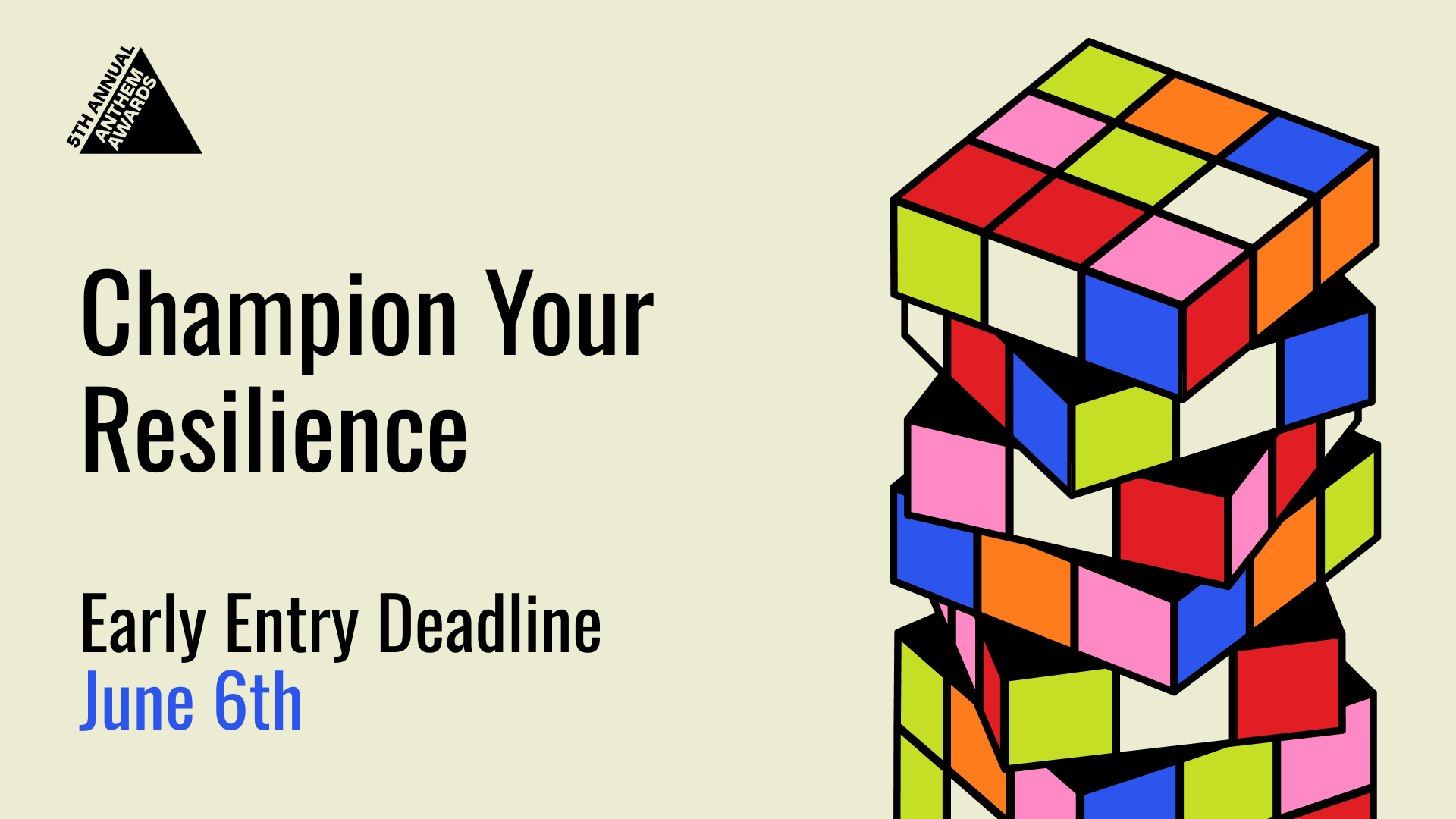Read our Op-Ed in Digiday on Brand Impact
How brands can put social impact at the core of their business to lead the future, by Jessica Lauretti, Managing Director, The Anthem Awards.
Check out our op-ed on Digiday now!

Over the past 20 years there has been a massive cultural shift — the technological revolution has disrupted our individual relationship to the planet. This shift has offered unparalleled global access and connectivity while giving way to a disruption of traditional supply and distribution chains and ushering in a new wave of automation. The social media revolution has disrupted our relationship with communication, with new tools that help us share, organize and participate on a global scale while also accelerating misinformation leading to division and violence.
The past 10 years have seen an increased escalation of this trend. Economic factors such as increased living costs, stagnated wages and increased debt, along with severe storms, political unrest, war, refugee migration and the current pandemic force us to confront our global interconnectedness, a future of instability and an emphasis and urgency around the here and now. From digital to grassroots organizing, fundraising, awareness campaigns and launching of new social movements, humans are working together like never before to make a direct impact on their communities.
Brands acting on this societal shift will gain more trust from consumers
These factors are prompting a new level of public discourse and debate, and have ushered in a new era of consumer and corporate transparency and accountability.
There has been a shift toward experiences over material possessions as well as a new lack of trust in our institutions and government. As a result, individuals, organizations and corporations have become de facto leaders and trust, authenticity and attention are the currency of the day — coupled with a rejection of the status quo. There is now a global call for progress and action in pursuit of landmark victories across climate, human and civil rights, equality and more.
The numbers reflect this societal shift and show that the public is demanding this change and putting their dollars behind their actions:
- 86% agree that CEOs should publicly speak out on societal challenges such as pandemic impact, job automation and local community issues
- 66% of millennials and Gen Z respondents say they are willing to pay more for products and services that come from companies who are committed to positive social and environmental impact
- 64% of millenials won’t take a job if a company doesn’t have strong corporate social responsibility values
And we see that brands are answering this call. The Webby Awards reports that they have seen a 33% increase in social impact work submitted for recognition in the past four years from brands and agencies alike. From groups standing up for human rights to brands creating inclusive workplaces, organizations across industries are actively reimagining a better world for all.
Brands integrating sustainability into authentic storytelling will find success
When considering a brand’s impact on the world, it’s best to begin with the core of their work. Gone are the days of a single day of volunteer service to make up for the rest of the year’s actions or the marketing campaigns developed to cover up some distinct damage created. Brands should be thinking of how to build and execute on their company responsibly, ethically and with authenticity and integrity on every level. They can start by creating their mission, vision and values with an equitable and sustainable purpose at its heart and soul.
From the core brand purpose flows the rest of the brand’s impact. The way leaders show up in the world is through the daily actions and decisions they make on their products and services, including the materials and supply chains they use, the business model they participate in, the employees they engage, hire and promote and the partnerships and collaborations they cultivate.
Storytelling is key and inclusivity is paramount. If a brand doesn’t have the authority to talk about an issue, they should make sure there are stakeholders in the room who do. Developing a diverse stakeholder team across leadership, partners and community sponsors can help ensure there is accurate representation and a variety of viewpoints at the table. When leading with impact, the story a brand tells the world is the story of the better future they are building and creating everyday with their work.
We are experiencing an unprecedented era and opportunity where social justice has emerged from a place of resistance and counterculture to the forefront of the global zeitgeist. This is the moment for a dedicated and comprehensive platform to share, recognize and celebrate the work of millions of individuals, organizations and entrepreneurs all working tirelessly to reimagine and rebuild the existing structures and dynamics of our society and fight for what they believe in with creativity, passion and innovation.
In this moment of reflection, it has become clear that the future is in products, services and experiences that impact the world and make people’s lives better across diversity, equity and inclusion, education, arts and culture, health, human and civil rights, humanitarian actions and services, responsible tech, sustainability, climate and environment. Brands can no longer sit on the sidelines, and those that put social impact at the core of their mission, vision and values will be the leaders of the future.








